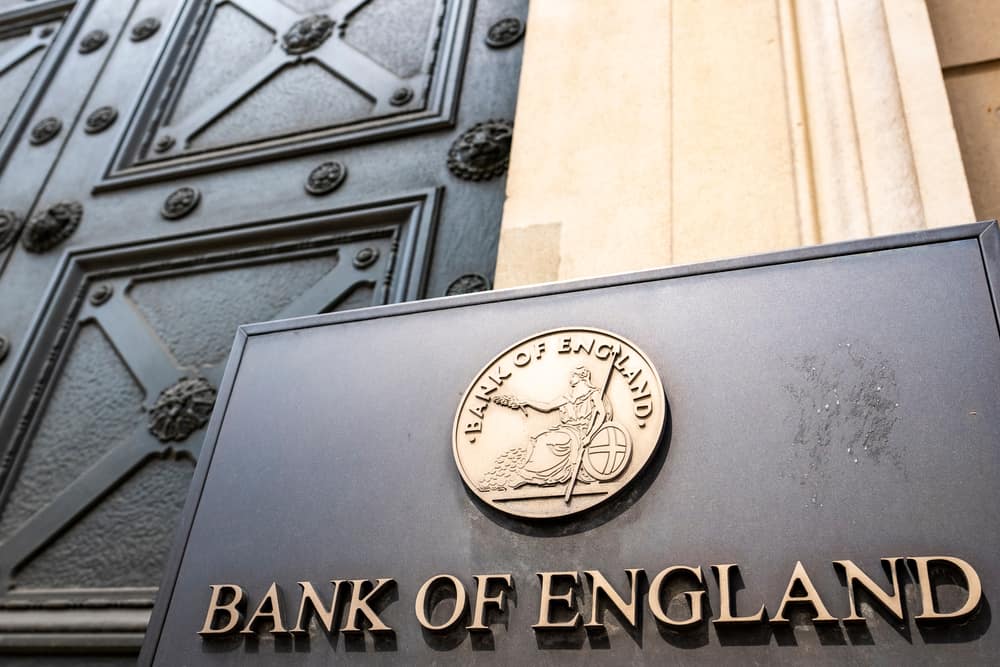
The bank’s Monetary Policy Committee (MPC) voted to increase the bank rate by 0.25 percentage points, from 0.5% to 0.75%.
The increase is the third consecutive since December, when the MPC elected to up rates from 0.1% to 0.25%, and then from 0.25% to 0.5% in February.
The MPC members voted, 8–1, in favour of the rate hike, with the lone dissenting member preferring to maintain the bank rate at 0.5%.
BoE announced the decision in a statement that also contained a condemnation of Russia’s unprovoked invasion of Ukraine.
“The invasion of Ukraine by Russia has led to further large increases in energy and other commodity prices including food prices,” the Bank said. “It is also likely to exacerbate global supply chain disruptions, and has increased the uncertainty around the economic outlook significantly. Global inflationary pressures will strengthen considerably further over coming months, while growth in economies that are net energy importers, including the United Kingdom, is likely to slow.”
Paul Broadhead, head of mortgage and housing policy at the Building Societies Association, was among those to react to the news believing it would be “unwelcome” for many.
“Given the rising costs of living, including the increase in the energy price cap, rising prices and the tax increases coming in next month, alongside the uncertainty the Russian invasion of Ukraine is causing, the Bank Rate increase will be unwelcome news for many,” he said.
“It is helpful that eight in 10 mortgage holders are on a fixed rate as these people will continue to pay the same each month until their fixed rate period ends. The 20% on variable rate mortgages are likely to see their payments rise, but while this is the third rate rise since December, the increase in their mortgage payments will be modest.
“Lenders are sensitive to the rising number of people facing a squeezed household budget and we hope the Chancellor will provide some additional support to households in his Spring Statement next week. Anyone who is worried about their ability to pay their mortgage, particularly on top of energy and food price rises, should get in touch with their lender early. Lenders will do everything possible to help.”
Meanwhile, Dominik Lipnicki, director of Your Mortgage Decisions, believes the decision will not necessarily help the present situation.
“There are specific reasons for the current inflation we’re seeing and the Bank of England raising the base rate will do very little to fix the problem,” he said. “We have all seen huge energy price increases and more are yet to come. Coupled with the upcoming National Insurance hike, this means that many people will struggle and have to choose between heating and eating. By increasing their mortgage payments, this financial strain will only become more severe. We have a very tough year ahead and raising rates now is not the answer.”
For Vikki Jefferies, proposition director at PRIMIS Mortgage Network, the role of brokers will be vital.
“Brokers will now need to be more proactive than ever to secure the best outcomes for their customers,” she said. “This is particularly the case for those who have complex financial situations, and brokers should act quickly to help these customers to find the most appropriate and affordable products that fit their current circumstances.”
Meanwhile, Nathan Emerson, chief executive at Propertymark, said “the housing market has emerged from the pandemic in a strong enough position to absorb much of the impact of the economic shocks” and that it was “important to remember it remains relatively cheap to borrow money.”
As for Frances Haque, chief economist at Santander UK, the decision was “not a surprise.”
“With inflation continuing to rise to levels not seen in decades, caused partly by supply constraints and the energy crisis exacerbated by the ongoing situation in Ukraine; along with the labour market remaining tight; and medium-term inflation expectations rising, the Committee’s concerns over these trumped apprehension around the effect on economic growth of raising the bank rate again,” he said.
“However, moving forward, with the new energy cap coming into force in April along with the National Insurance hike squeezing incomes further, the MPC will continue to need to balance inflation expectations against lower growth as we move through 2022.”



